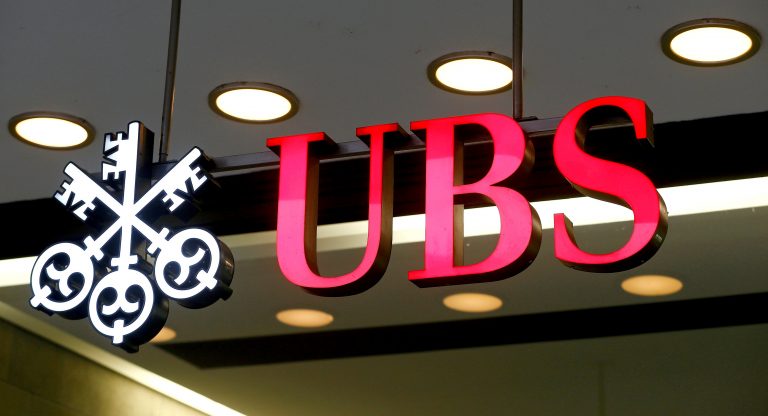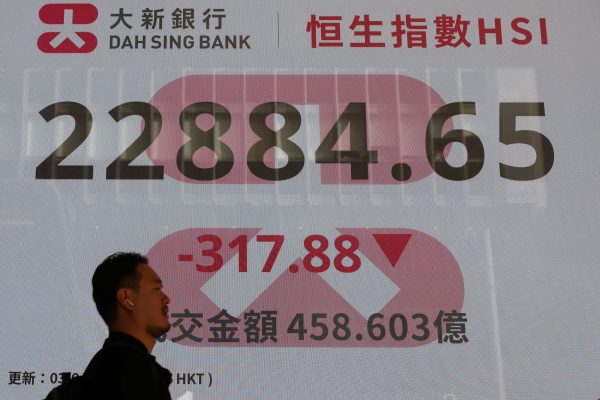
UBS places the Greek government bonds maturing in 2024 and 2025 in its top options (Bond Top List), with current yields close to 3.5%. As the Swiss bank points out, “almost exactly a year ago, we raised the credit outlook for Greece to improved from stable, believing that at least one of the major rating agencies would upgrade its recommendation to high BB during its lifetime, as and it happened”.
“While the outlook for a eurozone recession and tighter monetary policy are clearly headwinds for any sovereign rating upgrades, we believe further upgrades are likely for Greece over the next twelve months, supporting credit improvement. The odds of reaching investment grade during 2023 are intact, in our view, but we believe this will require some upside surprises on the economic and fiscal side,” the bank estimates.
Increased volatility
The bank adds that “we included short-term Greek bonds in our Top List, but we point out their expected increased volatility due to the limited support from the markets and ECB reinvestments and their non-investment grade.” We expect credit risk premiums to rise from now on, due to the coming recession, tighter monetary policy (resulting in reduced liquidity) and likely large issuance of new bonds in the first quarter of 2023.
“When we compare Greek bonds with those of Italy, which are more liquid and rated at investment grade, Greek yields on most parts of the bond curve look expensive from a fundamental perspective. However, technical factors explain the valuation premium and may even allow Greek bonds to trade within the Italian curve temporarily during a market sell-off. These factors include: firstly, much lower exposure to rising interest rates due to low debt carryover and funding needs, secondly, no exposure to ECB quantitative policy and tightening through the APP and thirdly, lack of Greek bonds in free float; with a value of only 21% of GDP”, underlines UBS.
“Consequently”, it concludes, “we prefer to stay away from Greek long-term Greek bonds due to the overall expected spread widening, but we continue to include two Greek government bonds in our Bond Top List as good carry yield opportunities: the bond maturing in 2024 ( GR0114031561), with a yield of 3.2% and a coupon of 3.45% and the bond maturing in 2025 (GR0118017657), with a yield of 3.4% and a coupon of 3.375%.
Estimates
Furthermore, the Swiss bank notes: “Rating agencies have repeated upgrades during 2022. Moody’s (Ba3, stable) currently assigns the lowest rating to Greece among the big four and we expected it to consider a grade upgrade to Ba2, which we believe should come during the next year. S&P (BB+, stable) upgraded Greece to BB+ last April and may be reluctant to make the next upward move before economic and political risks subside. Fitch (BB, positive) and DBRS (BB High, stable) have the highest rating and it is possible that one of these two houses will be the first to assign an investment grade (IG) rating after the 2010 debt crisis. We believe such upgrades are more likely by 2024, but also likely in the second half of 2023.”
“In addition to qualifying under the ECB’s collateral rules, an IG rating of Greek bonds by the major rating agencies will also allow for inclusion in widely used bond benchmarks. Many large institutional investors can only invest in IG-rated bonds, and a higher sovereign rating (used as a rating cap) can also allow major Greek companies such as banks to be upgraded,” explains the Swiss house.
Short-term risks
The short-term risks for Greece are mainly related to the expected recession in the Eurozone and the possible negative effects they will have on tourism, after the especially enhanced tourism season of 2022. In addition, the upcoming parliamentary elections in July 2023 may lead to another change in the government, it is pointed out. The ND party government’s lead in the polls is steadily shrinking, and a shift to a left-wing SYRIZA-led government could come with changes in fiscal policy.
As UBS explains, SYRIZA was the government that implemented most of the reforms demanded by external creditors after Greece’s 2012 crisis and debt restructuring. Also, the EU’s willingness to step up debt relief will be a critical driver. It also sees only a moderate risk of a critical fiscal misalignment overall, but given that Greece is very highly leveraged and does not participate in the ECB bond market, in a higher inflation environment the downside risks to bondholders should not be ignored.
Latest News

Cost of Living: Why Greece’s 3% Inflation Is Raising Alarm
Greece appears to be in a more difficult position when it comes to price hikes, just as we enter the era of Trump’s tariffs.

Fitch Ratings Upgrades the Four Greek Systemic Banks
NBG’s upgrade reflects the bank’s ongoing improvements in its credit profile, Fitch notes in its report, including strong profitability, a reduction in non-performing exposures (NPEs), and lower credit losses

Trump to Announce Sweeping New Tariffs Wednesday, Global Retaliation Expected
With Trump's announcement just hours away, markets, businesses, and foreign governments are bracing for the fallout of one of the most aggressive shifts in U.S. trade policy in decades.

Inflation in Greece at 3.1% in March, Eurostat Reports
Average inflation in the eurozone settled at 2.2%, compared to 2.3% in February

Greece’s Unemployment Rate Drops to 8.6% in February
Despite the overall decline, unemployment remains higher among women and young people.

Jerry Kalogiratos Highlights Key Role of Energy Transition and Data Demand in LNG Outlook
Energy transition and the prospects of LNG were discussed at Capital Link’s 19th Annual International Maritime Forum, during a panel discussion with Jerry Kalogiratos (Capital Clean Energy Carriers Corp.)

Santorini Safe and Ready for a Dynamic Tourism Season
Authenticity, cultural heritage, and genuine experiences at the center of Santorini's new promotional campaign

Electricity Bills: Greece Announces Reduced Tariffs Schedule
Greece will now offer lower electricity rates between 11:00-15:00 and 02:00-04:00

Chevron Confirms Eyeing Natural Gas Exploration South of Crete
Chevron recently declared its intent to explore a third area, south of the Peloponnese.

Evangelos Marinakis: A time of change from which shipping can benefit
Speaking at the 19th Annual Capital Link International Shipping Forum Evangelos Marinakis stressed the challenges that shipping faces today












![Τουρκία: Μεγάλες βλέψεις για παραγωγή ηλεκτρικών οχημάτων [γράφημα]](https://www.ot.gr/wp-content/uploads/2025/03/ot_turkish_autos-90x90.png)











![ΕΛΣΤΑΤ: Αυξήθηκε η οικοδομική δραστηριότητα κατά 15,6% το Δεκέμβριο [πίνακες]](https://www.ot.gr/wp-content/uploads/2025/03/DSC9655-2-1024x569-1-90x90.jpg)

















 Αριθμός Πιστοποίησης
Αριθμός Πιστοποίησης